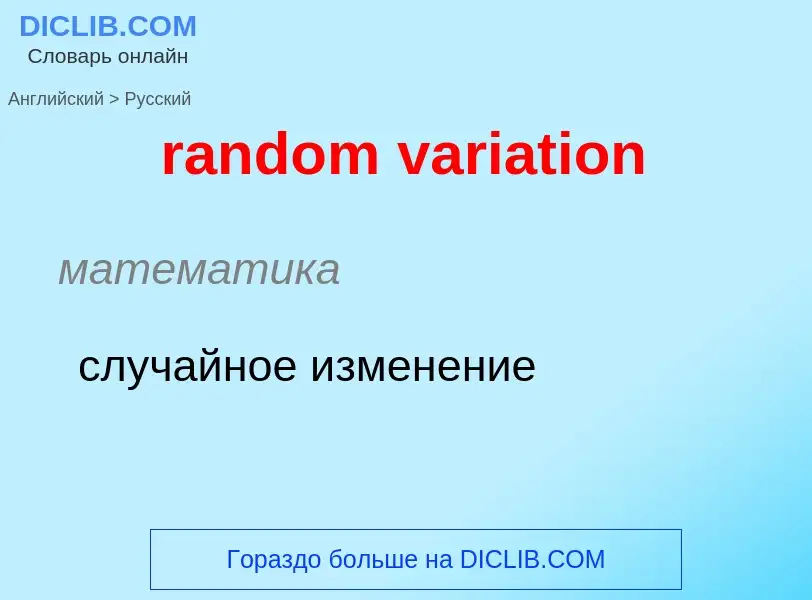Translation and analysis of words by ChatGPT artificial intelligence
On this page you can get a detailed analysis of a word or phrase, produced by the best artificial intelligence technology to date:
- how the word is used
- frequency of use
- it is used more often in oral or written speech
- word translation options
- usage examples (several phrases with translation)
- etymology
random variation - translation to russian
математика
случайное изменение
Definition
Wikipedia
A random variable (also called random quantity, aleatory variable, or stochastic variable) is a mathematical formalization of a quantity or object which depends on random events. The term 'random variable' can be misleading as it is not actually random or a variable, but rather it is a mapping or a function from possible outcomes (e.g., the possible upper sides of a flipped coin such as heads and tails ) in a sample space (e.g., the set ) to a measurable space (e.g., in which 1 corresponding to and −1 corresponding to ), often to the real numbers.
Informally, randomness typically represents some fundamental element of chance, such as in the roll of a dice; it may also represent uncertainty, such as measurement error. However, the interpretation of probability is philosophically complicated, and even in specific cases is not always straightforward. The purely mathematical analysis of random variables is independent of such interpretational difficulties, and can be based upon a rigorous axiomatic setup.
In the formal mathematical language of measure theory, a random variable is defined as a measurable function from a probability measure space (called the sample space) to a measurable space. This allows consideration of the pushforward measure, which is called the distribution of the random variable; the distribution is thus a probability measure on the set of all possible values of the random variable. It is possible for two random variables to have identical distributions but to differ in significant ways; for instance, they may be independent.
It is common to consider the special cases of discrete random variables and absolutely continuous random variables, corresponding to whether a random variable is valued in a discrete set (such as a finite set) or in an interval of real numbers. There are other important possibilities, especially in the theory of stochastic processes, wherein it is natural to consider random sequences or random functions. Sometimes a random variable is taken to be automatically valued in the real numbers, with more general random quantities instead being called random elements.
According to George Mackey, Pafnuty Chebyshev was the first person "to think systematically in terms of random variables".

